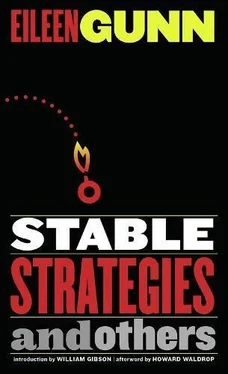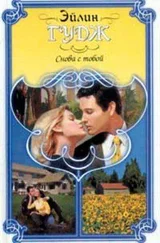Эйлин Ганн - Coming to Terms
Здесь есть возможность читать онлайн «Эйлин Ганн - Coming to Terms» весь текст электронной книги совершенно бесплатно (целиком полную версию без сокращений). В некоторых случаях можно слушать аудио, скачать через торрент в формате fb2 и присутствует краткое содержание. Год выпуска: 2004, Жанр: Фантастика и фэнтези, на английском языке. Описание произведения, (предисловие) а так же отзывы посетителей доступны на портале библиотеки ЛибКат.
- Название:Coming to Terms
- Автор:
- Жанр:
- Год:2004
- ISBN:нет данных
- Рейтинг книги:4 / 5. Голосов: 1
-
Избранное:Добавить в избранное
- Отзывы:
-
Ваша оценка:
- 80
- 1
- 2
- 3
- 4
- 5
Coming to Terms: краткое содержание, описание и аннотация
Предлагаем к чтению аннотацию, описание, краткое содержание или предисловие (зависит от того, что написал сам автор книги «Coming to Terms»). Если вы не нашли необходимую информацию о книге — напишите в комментариях, мы постараемся отыскать её.
Coming to Terms — читать онлайн бесплатно полную книгу (весь текст) целиком
Ниже представлен текст книги, разбитый по страницам. Система сохранения места последней прочитанной страницы, позволяет с удобством читать онлайн бесплатно книгу «Coming to Terms», без необходимости каждый раз заново искать на чём Вы остановились. Поставьте закладку, и сможете в любой момент перейти на страницу, на которой закончили чтение.
Интервал:
Закладка:
Coming to Terms
by Eileen Gunn

The life leaked out of the old man. He lay in bed for more than a month, in hospital and nursing home, in worlds of pain. He fought first for control of his death, then for control of his life once more. Toward the end he gave up his desire for control, as much as he was able. He still issued every visitor a list of tasks, but he knew he had no control over whether those tasks got done.
So, painstakingly, he combed the thatch of the past. He returned to the old mysteries and puzzles, and reflected at length on the lives and motivations of people long dead. He constructed theories to explain the petty cruelties of childhood bullies. He made plans to purchase a small house, to reclaim his land in Guatemala, to publish essays, fiction, fragments of prose. He ate bananas and rye bread and institutional meals, and put his teeth in when visitors stopped by. He resolved not to worry about things he couldn't fix, and struggled to keep that resolution.
Then the muscles of his heart, exhausted after three billion beats and weakened by pneumonia, diabetes, and the stress of a choleric temperament, paused just for a moment, and could not resume. A nurse called for help and, with a team of aides, brought him back. He squeezed her hand, his heart failed again, and they let him go. The tenuous flow of electrochemical impulses that made up his nervous system slowed and ceased, and the order that he had imposed on the universe started to disintegrate, releasing heat.
His body cooled. A mortician came and removed it. A nurse's aide gathered his belongings together, threw out a few unimportant scraps of paper, put the rest in a plastic bag. The bed was remade: someone was waiting for it.
Friends came to visit, and found him gone. The news traveled, a spasm of regret at the disappearance of a keen mind, a brilliant wit, a generous friend. Kindnesses postponed would not be realized. Harsh words, whatever the source or reason, could not be unsaid.
He died with a book newly released, an essay in the current issue of a popular journal, a story to appear shortly in a well-known magazine. He left a respectable amount of work and a stack of unpublished manuscripts made more marketable by the fact of his death. For days after he died, his friends continued to receive his cards and letters.
After the passage of several weeks, his daughter, sorry about her father's death but not pleased at having to shoulder the responsibility, came from out of state to pack up his papers and books and to dispose, somehow, of the rest of his belongings. She unlocked the door and let herself into the silent, stale-smelling apartment.
The old man's spirit was still strong; he had always put its stamp on everything of consequence in his possession.
An umbrella with the handle carved into the shape of a goose's head leaned against the wall inside the door. A tag hung from the neck. It read, in her father's handwriting: "The kind gift of Arthur Detweiler, whom I met in the public library reading room on a rainy March afternoon."
She looked around the cramped two-room apartment. There were slippery piles of manuscripts and writing supplies. Heaps of clothes, towels, dirty dishes. A scattering of loose CDs across the top of his desk. Stacks of books, books, books.
She had never been there before. Her father had moved, not long before his death, to this last remote way-station in a lifetime of wandering. Too new to the old man to be called his home, the small flat was clearly in disarray. Some belongings were in cardboard boxes, still unpacked from his last move or the one before that.
She had a fleeting thought that perhaps someone had broken in, to rifle her father's few belongings, and had put them in the boxes to take them away. At his previous place, a kid with a knife had come in and demanded forty bucks from his wallet. It made her angry, the idea of somebody coming in and rooting through her father's stuff, while he lay dying in the hospital. But then, she thought, it doesn't matter. He took no money with him, and he surely didn't leave much behind. What he had had of value was his mind and his persistence and his writing skills, and those, actually, he had taken with him.
The cleanup seemed daunting, too much for her to deal with all at once. Maybe she'd make herself a cup of tea first. If there was tea.
In the kitchen, scraps of paper were taped on surfaces, stuck into openings, poked into canisters. A torn piece of lined yellow paper, taped to the front of the refrigerator, read "This big refrigerator! What for? I'm an old man, I don't cook."
You didn't cook when you were younger, either, thought the daughter. A hotdog when she came for lunch, Chinese if she stayed for dinner. When she was a teenager, trying to create a normal life for this wayward parent, she had tried cooking meals for him when she came to visit, but he wasn't patient with her mistakes.
On the stove, a piece of paper was stuck on the front of the clock, obscuring the face: "Ignore this clock. The clocks on stoves are always wrong."
Squares of paper were taped all over the stove:
"Mornings, I make myself a pot of coffee, if my stomach permits."
"A deep fat fryer! What are they trying to do, kill me?"
"The oven needs cleaning. My mother used to get down on her hands and knees and clean the oven every week. She baked her own bread, and put a hot meal on the table every night. She made us oatmeal in the mornings, none of this toasted-twinkies instant-breakfast stuff. She sewed all her own clothes, and my sister's as well. She's been dead thirty-five years, and I miss her still."
The young woman sighed. In thirty-five years, would she miss her father? Maybe you miss people more as you get older ” but she'd come to terms with his absence many years before.
When he had moved across the country, in search of a job or a woman, she had completely lost the sense of being his child, of being under his protection. She didn't miss him yet: it didn't seem that he was gone, just that he'd moved on.
She filled a small saucepan with water and put it on to boil, then opened the door of the cabinet next to the stove: a tin of baking powder, a package of cardboard salt-and-pepper shakers, vinegar, spices….
She moved an herb-jar, and a piece of yellow paper wafted down. "The odor of wild thyme, Pliny tells us, drives away snakes. Dionysius of Syracuse, on the other hand, thinks it an aphrodisiac. The Egyptians, I am told, used the herb for embalming, so I may yet require the whole of this rather large packet."
She reached behind the herbs and grabbed a box of tea bags, a supermarket house brand. Better than nothing. Written on the box: "My mother drank Red Rose tea all her days, and I used to wonder how she could abide it when the world was full of aromatic teas with compelling names: Lapsang Souchong, Gunpowder, Russian Caravan. I keep this box for guests with unadventurous palates. There is good tea in the canister marked 'Baking Powder.' Don't ask why."
She pulled down the baking powder tin. There was a tiny yellow note stuck to the inside of the lid. In miniature script, it said, "The famous green tea of Uji, where there is a temple to Inari, attended by mossy stone foxes wearing red bibs." Her father had spent several years in Japan studying Zen. The experience had not made him, in her opinion, calmer, more accepting, more in tune with the universe, or any of those other things she thought Eastern religions were supposed to do.
A teaball? She opened the drawer below the counter. There were no notes in it, but there was a bamboo tea strainer among the knives and spatulas. She picked it up. Written on the handle, in spidery black ink, were the words "Leaks like a sieve."
Читать дальшеИнтервал:
Закладка:
Похожие книги на «Coming to Terms»
Представляем Вашему вниманию похожие книги на «Coming to Terms» списком для выбора. Мы отобрали схожую по названию и смыслу литературу в надежде предоставить читателям больше вариантов отыскать новые, интересные, ещё непрочитанные произведения.
Обсуждение, отзывы о книге «Coming to Terms» и просто собственные мнения читателей. Оставьте ваши комментарии, напишите, что Вы думаете о произведении, его смысле или главных героях. Укажите что конкретно понравилось, а что нет, и почему Вы так считаете.












